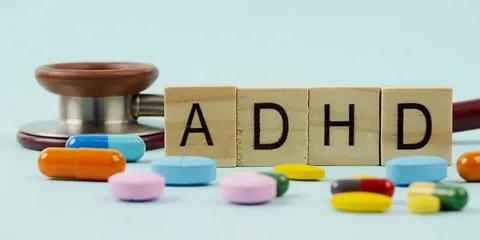Overview
Managing ADHD (Attention-Deficit/Hyperactivity Disorder) frequently requires a multimodal strategy that combines medication with lifestyle modifications and techniques. While fundamental symptoms of ADHD can be effectively addressed with medication, long-term well-being depends on achieving a balance between medication and lifestyle factors. In order to attain the best results and overall harmony in controlling ADHD, we explore in this essay the significance of striking a balance between lifestyle decisions and ADHD medication.
Comprehending ADHD Drugs
By focusing on brain neurotransmitters, ADHD medications are effective in treating symptoms like impulsivity, hyperactivity, and inattention. For ADHD, non-stimulant treatments like atomoxetine and guanfacine are frequently recommended in addition to stimulant drugs like methylphenidate and amphetamines. These drugs can enhance concentration, attentiveness, and impulse control, which can lead to enhanced social, professional, and academic functioning.
The Impact of Lifestyle Decisions on ADHD Treatment
Effective management of ADHD is contingent upon lifestyle decisions in addition to the use of medication. Lifestyle elements that affect ADHD symptoms and general well-being include nutrition, exercise, sleep patterns, stress reduction, and organization. Optimizing treatment outcomes and fostering a harmonious lifestyle require striking a balance between medicine and lifestyle choices.
Methods for Harmonizing Lifestyle Decisions with ADHD Medication
A nutritious diet and nutrition
Those with ADHD must make sure their food is well-balanced and high in nutrients. Foods and eating habits can have an effect on energy, mood, and attentiveness. Limit your intake of processed meals, sugary snacks, and caffeine, and increase your intake of whole foods, fruits, vegetables, lean proteins, and omega-3 fatty acids. To ensure drug compatibility for ADHD, discuss any dietary issues or considerations with your healthcare provider
Frequent Movement and Exercise
For those with ADHD, regular physical activity has many advantages. Exercise promotes greater sleep quality, mood improvement, energy regulation, and cognitive performance. Include enjoyable activities in your schedule, such as riding, yoga, jogging, walking, or team sports. To get the mental and emotional benefits, try to engage in moderate exercise for at least half an hour on most days of the week.
Putting Sleep Hygiene First
For both managing ADHD and general well-being, getting enough sleep is essential. Limit screen time before bed, develop a peaceful bedtime ritual, stick to a regular sleep schedule, and make sure your sleeping environment promotes regenerative sleep. A key component of balanced ADHD care, adequate sleep promotes mood stability, cognitive performance, and the efficacy of medications.
Techniques for Stress Management
Stress can make symptoms of ADHD worse and reduce the efficiency of medicines. Include stress-reduction strategies in your everyday practice, such as journaling, progressive muscle relaxation, deep breathing exercises, and mindfulness meditation. Recognize stressors and create coping mechanisms to successfully manage obstacles and preserve emotional equilibrium.
Organization and Time Management
For those with ADHD, having strong organizational and time management abilities is essential. To prioritize work, set priorities for your day, and maintain organization, make use of tools like task lists, calendars, planners, and reminders. Divide more complex jobs into smaller, more doable steps and set aside certain time slots for concentrated work or study. Medication adherence and productivity are enhanced by regular routines and order.
Reducing Distractions
Reducing the amount of distractions in your surroundings can improve concentration and focus, which will support the effects of ADHD medication. Make your office clutter-free, minimize outside distractions with music, use noise-canceling headphones when necessary, and put digital distraction management techniques into practice. Creating a space that is suitable for work, study, or recreation encourages productivity and job fulfillment.
Communication and Social Support
In order to balance ADHD medication with lifestyle choices, it’s critical to keep lines of communication open with family, friends, educators, and healthcare professionals. Seek assistance when required, talk to others about any worries or difficulties with medication or daily activities, and engage with your support system to put ideas into action. Effective ADHD treatment and empathy are fostered in a supportive atmosphere.
Keeping an eye on things and modifying tactics
Keep a close eye on your development, the efficacy of your medications, and your adherence to lifestyle modifications. During follow-up appointments, review any changes in functioning, mood, or symptoms with your healthcare practitioner. To get the most out of your ADHD treatment plan, modify the amount or timing of your medications as needed, tweak your lifestyle choices in light of your needs and experiences, and keep lines of communication open.
Conclusion: Harmonizing the Treatment of ADHD
The dynamic process of managing ADHD medication and lifestyle choices necessitates constant assessment, modification, and cooperation with medical professionals and support systems. You can attain harmony in treating ADHD symptoms and boosting general well-being by incorporating stress management methods, organizing tactics, healthy habits, and good communication into your daily routine. You can flourish, achieve success, and have a happy life with ADHD if you can strike the correct balance between medication and lifestyle choices.

